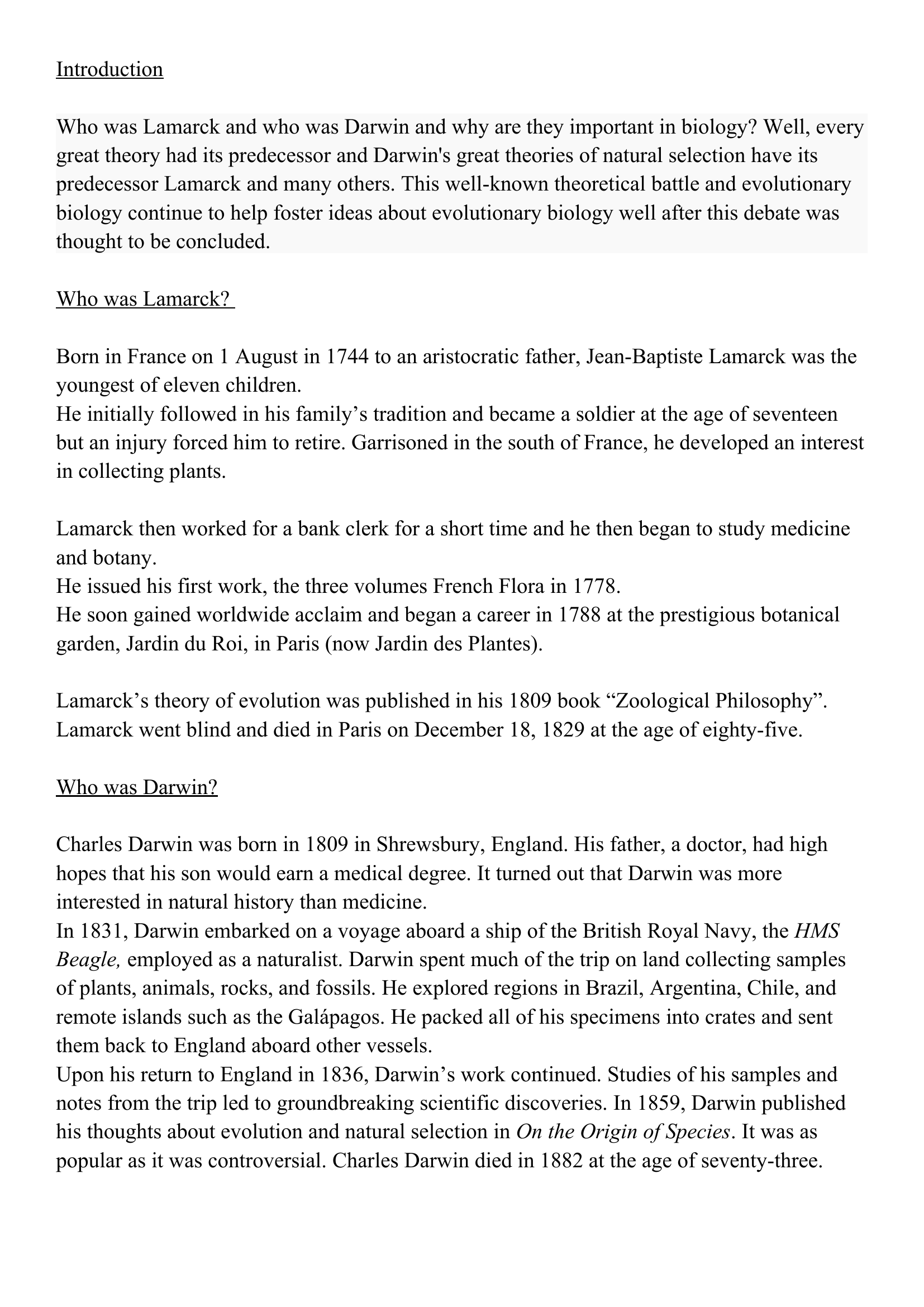Lamarck et Darwin en anglais
Publié le 12/03/2022
Extrait du document
«
Introduction
Who was Lamarck and who was Darwin and why are they important in biology? Well, every
great theory had its predecessor and Darwin's great theories of natural selection have its
predecessor Lamarck and many others.
This well-known theoretical battle and evolutionary
biology continue to help foster ideas about evolutionary biology well after this debate was
thought to be concluded.
Who was Lamarck?
Born in France on 1 August in 1744 to an aristocratic father, Jean-Baptiste Lamarck was the
youngest of eleven children.
He initially followed in his family’s tradition and became a soldier at the age of seventeen
but an injury forced him to retire.
Garrisoned in the south of France, he developed an interest
in collecting plants.
Lamarck then worked for a bank clerk for a short time and he then began to study medicine
and botany.
He issued his first work, the three volumes French Flora in 1778.
He soon gained worldwide acclaim and began a career in 1788 at the prestigious botanical
garden, Jardin du Roi, in Paris (now Jardin des Plantes).
Lamarck’s theory of evolution was published in his 1809 book “Zoological Philosophy”.
Lamarck went blind and died in Paris on December 18, 1829 at the age of eighty-five.
Who was Darwin?
Charles Darwin was born in 1809 in Shrewsbury, England.
His father, a doctor, had high
hopes that his son would earn a medical degree.
It turned out that Darwin was more
interested in natural history than medicine.
In 1831, Darwin embarked on a voyage aboard a ship of the British Royal Navy, the HMS
Beagle, employed as a naturalist.
Darwin spent much of the trip on land collecting samples
of plants, animals, rocks, and fossils.
He explored regions in Brazil, Argentina, Chile, and
remote islands such as the Galápagos.
He packed all of his specimens into crates and sent
them back to England aboard other vessels.
Upon his return to England in 1836, Darwin’s work continued.
Studies of his samples and
notes from the trip led to groundbreaking scientific discoveries.
In 1859, Darwin published
his thoughts about evolution and natural selection in On the Origin of Species.
It was as
popular as it was controversial.
Charles Darwin died in 1882 at the age of seventy-three..
»
↓↓↓ APERÇU DU DOCUMENT ↓↓↓
Liens utiles
- Darwin Charles Robert, 1809-1882, né à The Mount (Shrewsbury), naturaliste anglais,auteur d'une théorie de l'évolution des espèces (darwinisme).
- Sciences & Techniques: Darwin et Lamarck : deux voix pour la théorie de l'évolution
- exposé anglais introduction to the Consumer Society
- De l'origine des espèces de Charles Darwin (résumé et analyse)
- Comparaison œuvres anglais

































